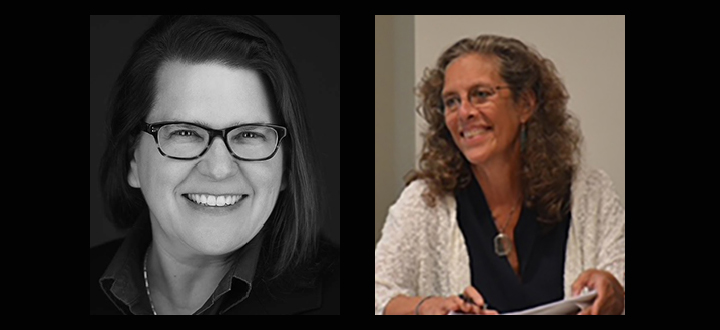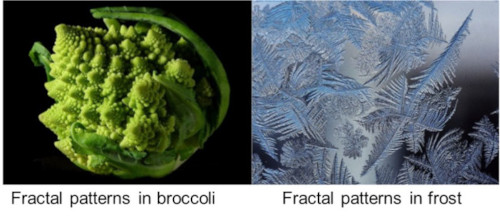College of Science, Engineering & Technology
Wielding the power of mathematics to solve real-world problems
Professor Emile Franc Doungmo Goufo, of the Department of Mathematical Sciences in the College of Science, Engineering and Technology, presented his inaugural lecture entitled “Impacts of fractional and fractal differential operators in applied sciences” on 14 February 2022.

Prof. Emile Franc Doungmo Goufo
His lecture eased the audience into the subject matter of mathematics by starting off with an explanation of how “dreadful” mathematical formulae can actually be used to depict real-life processes. An example that Goufo used was on how fractional calculus can be used to model the decomposition of a dead body mass. “It may take anything from 3 to 6 months for a dead body to become a skeleton, and centuries for a skeleton to transition to a fossil” said Goufo. “However, by using mathematical operators such as the Mittag-Leffer function, the rate of body mass decomposition can be modelled and expressed with certainty in real life.”
Fractal structures and patterns exist in nature and all around us. Examples of fractal patterns that occur naturally are the ones found in broccoli and in frost as shown below.

Fractal patterns can also be modelled mathematically. They are formed from chaotic equations and contain self-similar complex patterns across magnifications. If a fractal pattern had to be divided into smaller parts; you will end up with identical smaller-sized parts that are an exact copy of the whole. The mathematical beauty of fractals is that infinite complexity is formed with relatively simple equations.
Finding innovative techniques capable of explaining complex phenomena that occur in various fields, has become a priority for mathematicians. These fields include chaos theory, wave motion, rock fracture and neuron science. In his inaugural lecture address, Goufo showcased how they have managed to combine some of their most recently developed mathematical concepts to model and generate some fractal processes happening in real life that are useful in applied sciences.
Understanding or modelling rock fracture for example, is important in the fight against global warming. This is because rocks can absorb the carbon dioxide gas; which is one the greenhouse gases that contributes towards global warming through the fracture. As such, Goufo’ s research has involved performing mathematical analysis of an ecosystem's rock fracture, in which the fractal processes were considered. The findings from this research have proven the existence of chaotic self-replicating poles in the rock fracture system that contribute positively towards carbon dioxide capture.
Peer praise
“The role of a mathematician is to collect data, analyse the data to see which law the data follows, convert that data into a mathematical formula and subsequently a derivative. The mathematical formulae are then used in addressing many real-world problems”, explained Professor Abdon Atangana, academic head of department at the Institute for Ground Water Studies at the University of the Free State, who served as a respondent to Goufo’ s lecture. “Professor Goufo,” he continued, “is one of the pioneers of fractal fractional differentiation in Africa. He did not run away because the subject was difficult. It is a pleasure to listen to how he is using African mathematics to solve real-world problems and the results from his research findings being used all over Europe. “Professor Goufo continues preparing a way for the next generation of African students, showing them that Africans who came before them have contributed immensely to the field of mathematics. We do not work to impress our rectors, or to become A-rated scholars, but we work to make an impact.”
To date, Goufo has supervised to completion four master’s degree and six doctoral students and is currently involved in the supervision of eight more master’s and doctoral candidates. He has published more than 100 journal articles in internationally accredited journals. A C2 NRF-rated researcher, Goufo was recently recognised amongst the top two percent impactful scientists in the world in a scarce skill field in a list compiled by Stanford University. He certainly is a prolific scholar of note and an established researcher.
Goufo’s wish for the higher education sector is to decolonise the teaching and learning programmes currently offered by introducing concepts that have been developed by African people in solving African societal problems. Going forward, he plans to continue teaching, helping the community, producing impactful research papers, supervising students, and mentoring emerging colleagues in the Department of Mathematical Sciences and encouraging them to pursue their doctoral degrees so that they too can grow academically.
It was indeed an insightful lecture that sparked a lot of interest and engagement from researchers from various disciplines who are interested in how fractional operators as pioneered by Goufo could be applicable in fields such as mining engineering for rock blasting.
* By Dr Nozipho N Gumbi, Acting Communication and Marketing Specialist, College of Science, Engineering and Technology
Publish date: 2022/02/18

 Unisa co-hosts G20 community outreach in the Eastern Cape
Unisa co-hosts G20 community outreach in the Eastern Cape
 Unisans gain membership of prestigious science academies
Unisans gain membership of prestigious science academies
 Advocating for disability transformation through servant leadership
Advocating for disability transformation through servant leadership
 Unisa Press continues to illuminate the publishing space
Unisa Press continues to illuminate the publishing space